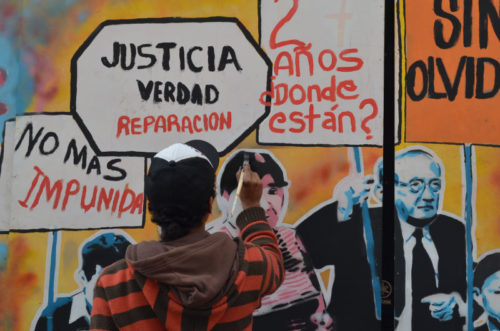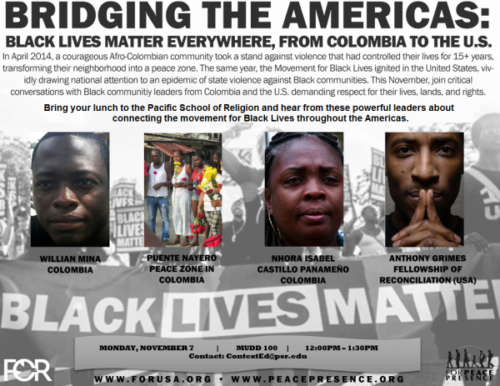Fighting for Black Lives in Colombia: At War’s End, the Search for a Seat at the Table
Share
Explore Our Galleries
Breaking News!
Today's news and culture by Black and other reporters in the Black and mainstream media.
Ways to Support ABHM?
By Lori S. Robinson, theroot.com

iStock
U.S. Rep. Hank Johnson (D-Ga.) had an authentic Afro-Colombian experience. “I was stopped in the airport and profiled, a case of racial profiling by police,” he says. Two officers requested to see his ID and asked him about some luggage found at another airport. The activists accompanying Johnson, who doesn’t speak Spanish, had to explain to the officers that they stopped the wrong black guy.
While this scene could easily have taken place in the United States, the history of racism in Colombia is quite different. The myth of racial democracy—a Latin American ideology that posits that inequality and discrimination exist because of class differences, not racism—persists. Still, the results of racism affect black people in similar ways….“In the United States, it was very clear you weren’t wanted: ‘No Blacks Allowed.’ Here, you’re left thinking, ‘Why didn’t they call me for a job interview?’ The racism in Colombia isn’t in-your-face,” Vidal explains. “They don’t tell you anything.” That’s true for everyday interactions as well as high-stakes politics….
Despite the disproportionate victimization of Afro-Colombians during the 52-year civil war, which ended last year, it wasn’t until the last day of four years of peace negotiations that Colombian President Juan Manuel Santos permitted input from black organizations.

psr.edu
This exclusion communicated a strong message. Says PCN leader Charo Mina-Rojas, “This just is absolutely clear evidence of the racism of this country and the lack of political will of this government to really recognize and respect and promote, as is its obligation, the rights and lives and well-being of indigenous and Afro-descendant people.”…
No matter what the government does, Afro-Colombian activists know what they will do. Despite being subjected to racism and violence, they will keep strategizing, building alliances and demanding their human rights.
Says William Mina, an activist in Buenaventura: “What motivates us to keep fighting is our culture, our tradition, the legacy that our ancestors have left us. We want to live for our children so they can live in tranquility.”
Read the full story here.
Read more Breaking News here.









Comments Are Welcome
Note: We moderate submissions in order to create a space for meaningful dialogue, a space where museum visitors – adults and youth –– can exchange informed, thoughtful, and relevant comments that add value to our exhibits.
Racial slurs, personal attacks, obscenity, profanity, and SHOUTING do not meet the above standard. Such comments are posted in the exhibit Hateful Speech. Commercial promotions, impersonations, and incoherent comments likewise fail to meet our goals, so will not be posted. Submissions longer than 120 words will be shortened.
See our full Comments Policy here.